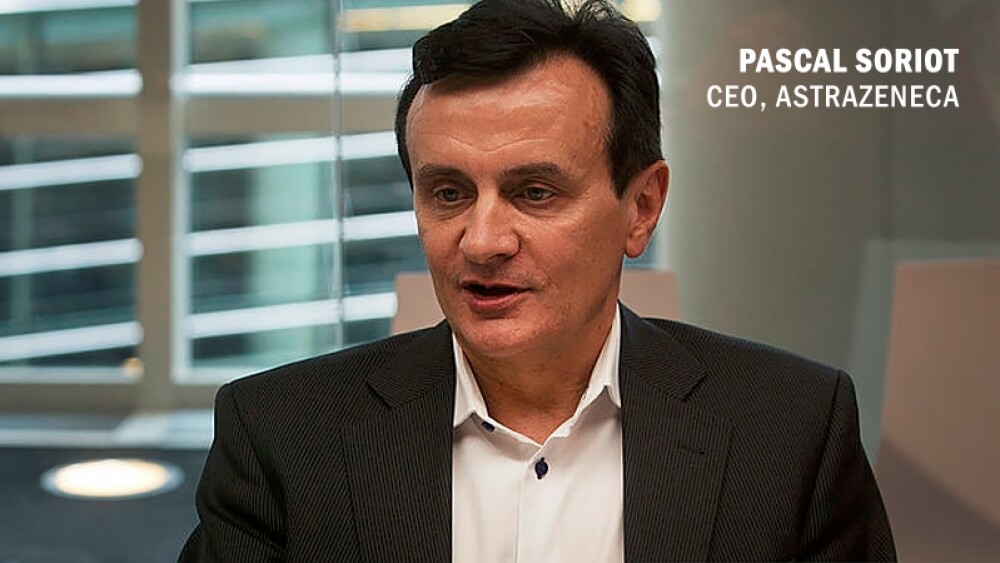August 8, 2016
By Mark Terry, BioSpace.com Breaking News Staff
It’s been two years since Pfizer ’s $119 billion bid for UK-based AstraZeneca fell apart. At that time, Pfizer was bidding 55 pounds per share. AstraZeneca has now hit that same price, 55.05 pounds per share, according to Reuters.
Although AstraZeneca stock has benefited from a falling pound and the possibility that Switzerland-based Novartis might try to acquire AstraZeneca, the bigger factor is a competitor’s woes. Bristol-Myers Squibb ’s drug Opdivo didn’t slow disease progression in patients with lung cancer who were previously untreated. Investors viewed this as good news for AstraZeneca and Merck & Co.
Bristol-Myers Squibb stock dropped 16 percent after news of Opdivo’s failure broke. Forbes wrote, “The news shocked Wall Street in part because in June, Merck had announced that its very similar (possibly identical) drug, Keytruda, had extended the lives of patients with non-small cell lung cancer. There was one big difference between the two studies: the results of a diagnostic test.”
Both drugs, Opdivo and Keytruda, inhibit programmed cell death ligand one (PD-L1), which allows cancer cells to hide from the immune system. Merck’s study evaluated tumors that had at least a 50 percent PD-L1 level. Bristol-Myers Squibb picked patients whose PD-L1 levels were more than 5 percent. “Although Bristol has not yet released full data from its study (that will likely come in October at a medical meeting),” writes Forbes, “this difference seems the most likely explanation for its failure.”
Although the 50-percent threshold gave Merck an advantage by focusing on patients most likely to benefit, Bristol-Myers Squibb argued that there’s benefit to patients below that 50-percent threshold, and for ethical and business reasons, chose to include them in the study. “I think we obviously took a risk to be more bold, to try to cover a broader population of patients, because our strategy was really to never leave patients behind,” Fouad Namouni, Bristol-Myers Squibb’s head of oncology drug development told Forbes.
This problem for Bristol-Myers Squibb appears to have benefited AstraZeneca’s stock value, at least for a while. Reuters wrote, “Analysts at Leerink, Jefferies and Deutsche Bank said the negative results with Opdivo increased the potential market opportunity for AstraZeneca’s keenly watched combination of durvalumab and tremelimumab.” Trial results are expected later this year.
The diagnostic test that the companies used to determine PD-L1 levels, is noted as an example of “personalized medicine,” which is to say, performing laboratory tests to better determine which drugs patients will benefit from the most. Bristol-Myers Squibb has the option of developing a more conservative clinical trial. The first trial was with PD-L1 patients with more than 5%, and then in lower PD-L1 levels. Forbes notes that if the company had picked a 20 to 30-percent threshold, it would likely have had better results.
From a dollars-only point of view, companies might want to avoid tying a diagnostic test with a drug, because more drugs will be used, regardless of whether they’re effective. As Forbes writes, “But the alternative is that patients who don’t get any benefit will bear the side effects—and the great financial cost—of a cancer drug that won’t help them. There’s been a temptation to portray immune-system-boosting drugs as different from other gene-targeted medicines. But the goal still has to be to get patients the right medicine for them.”
But Bristol-Myers Squibb is probably not done. There’s more data to be evaluated, and it’s possible the data will show benefit for patients with high PD-L1 levels. They will also likely be able to evaluate exactly which patients benefit from the drug based on their PD-L1 levels. If so, payers are likely to play off the various companies against each other to come up with better pricing. Bristol-Myers Squibb also has an ongoing study of Opdivo with another of its own immune-booster, Yervoy.





